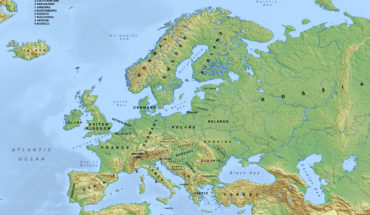More and more people are choosing to put time aside for volunteering on worthwhile projects around the world. Africa is one place attracting thousands of volunteers on humanitarian and conservation projects where help and expertise is desperately needed. Whether it’s a gap-year hiatus that needs filling, a career development opportunity or simply an adventure that’s required, there’s no doubt that volunteering in Africa can be a rewarding and eye-opening experience.
Be prepared
There’s no substitute for thorough preparation when planning an African volunteering expedition. Be assured, no matter how well researched, there will be plenty of surprises and curve balls along the way. Remember, when dealing with foreign cultures, often poverty stricken and deprived communities, they will be operating to a totally different set of rules; this can be both a challenge and great fun. By expecting the unexpected the complicated navigation of an exciting new world can be made much easier. As well as having all the practical and logistical details in place, work on mental and physical preparation too. There could be sad and difficult experiences ahead that may be emotionally draining, but also the hot climate and different diet may place added strain on you physically.
Paperwork
There will be visas and vaccinations galore to sort out prior to departure. All countries have different demands so carry out thorough research. Some volunteering organizations will assist with these details, but it is ultimately the responsibility of the individual volunteer to ensure all paperwork is in place. Apply for a passport at least six months prior to departure to avoid delays and maximize the budget by booking air tickets in advance with companies such as Flights.com. Arrange extra health insurance for the destination country and make sure the coverage is sufficiently robust and includes repatriation services if required.
Budget
Volunteering is usually unpaid; get that straight from the beginning; however, there will be different levels of support, which may include free accommodation and food. It could also be that contributions towards meals and boarding will be required; again, check with the volunteering organization or company managing the post. Don’t wait until arrival only to discover there’s nowhere to stay. As well as covering everyday items, it’s important to have a contingency fund available for emergencies. Pick the brains of other volunteers who have traveled to the same country, as they will have invaluable tips and local knowledge.
Where?
There are volunteer projects all over Africa including Tanzania, Ghana, South Africa, Ethiopia, Senegal, Morocco, Kenya and Togo. Whether it is human rights projects, teaching English, saving endangered animals or improving infrastructure, volunteers are matched to projects that utilize their skills and expertise. That said, it is possible to choose the type of volunteering work taken on; some people elect to work in orphanages, others building libraries and schools. The range of support needed ensures that the opportunities for helping out are endless. For shorter trips, building projects offer a sense of accomplishment and usually have more clearly defined timetables. Volunteering with children in orphanages and schools tend to require a longer commitment as there are attachment and bonding issues that need addressing in order to achieve the most beneficial results.
Pack wisely
Carrying a heavy bag across the world is not much fun, so try and keep things light and minimal. Experienced volunteers suggest that comfortable walking shoes, multivitamins, a personal medical/first aid pack and a head-lamp are all things they wished they’d packed. Be sensitive to local customs and cultures regarding dress and pack scarves, long sleeved blouses and skirts if necessary. Some volunteers pack small items from their home country with which to barter, exchange or give as gifts to new found friends.
Keep safe
These are turbulent times and volunteering in areas affected by political unrest, war and medical emergencies, such as Ebola outbreaks, mean it is essential to stay in touch with the latest guidance and advice. Many travelers enroll with the STEP (Smart Traveler Enrollment Program) run by the US State Department, which keeps them informed of the situations in the countries they are visiting regarding security and medical alerts and helps with communications in emergencies.
There’s no doubt that volunteering in Africa is a good way of giving something back and making a difference, no matter how small, to the lives of those less fortunate. There’s also every chance that for those who look hard enough, have a good idea of the type of volunteering they would like to become involved in and research and plan most effectively, the ideal volunteering post can be found.


